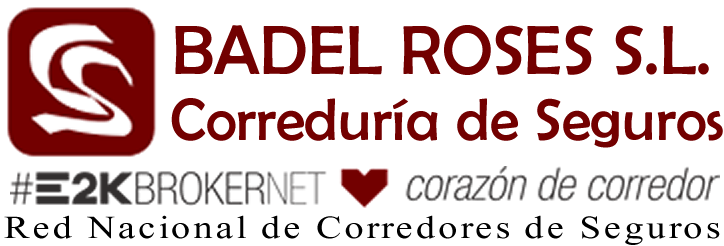To find out about the validity of emulators and ROMs, we spoke with Derek Bambauer, that is a Professor of Law at the University of Arizona, where he teaches internet legislation and copyright. Unfortunately, we found that no definitive answer truly exists, considering that these arguments have yet to be evaluated in court. However we can at the very least breast some misconceptions that are floating around out there.
For clearness, we conducted this interview in 2017; however, there have actually been no landmark cases that would certainly have changed the lawful landscape because that time. In very early 2025, Nintendo shut down Yuzu, a Nintendo Change emulator, however in its filings it never declared that emulation is illegal and they cleared up out of court.
Emulators Are Almost Certainly Lawful
So let start with the easy things. Despite what you may have heard, there not a lot of concern as to whether emulators are lawful; they probably are.by link roms-download.com website Also Apple has softened on emulators by ultimately permitting them right into the Application Store. An emulator is simply an item of software program suggested to mimic a game system- yet the majority of wear t consist of any kind of exclusive code. (There are exceptions, obviously, such as the BIOS data that are needed by specific emulators to play video games.)
Yet emulators aren t helpful without video game documents- or ROMs- and ROMs are often an unapproved copy of a video game that secured by copyright. In the United States, copyright safeguards benefit 75 years, implying no significant console titles will remain in the public domain name for years.
Yet also ROMs exist in a little bit of a gray area, according to Bambauer.
The Possible Exception for ROMs: Fair Use
To start: downloading a copy of a video game you don t own is illegal. It no different from downloading a film or TV reveal that you don t very own.#39;It piracy. Allow presume I have an old Super Nintendo, and I enjoy Super Mario Globe, so I download a ROM and play it, stated Bambauer.
That a violation of copyright. That relatively clear cut, right? And it more or less lines up with the language relating to ROMs on Nintendo web site, where the firm says that downloading and install any ROM, whether you possess the game or otherwise, is prohibited.
But exists a lawful protection? Possibly, if you already own a Super Mario Globe cartridge. After that, according to Bambauer, you might be covered by fair use.
Fair usage is an unclear requirement, not a guideline, Bambauer discussed. He says he can visualize a few possible defensible scenarios. If I possess a copy of Super Mario Globe, I can play it whenever I want, he keeps in mind, however what I d actually like to do is play it on my phone or my laptop. In this situation, downloading a ROM could be legitimately defensible.
You re not giving the video game to anyone else, you re simply playing a game you already possess on your phone, said Bambauer. The argument would exist no market damage here; that it not replacementing for an acquisition.
Now, this isn t black and white; just a possible legal disagreement. And Bambauer is quick to admit it not an excellent one. This is by no indicates a slam dunk argument, stated Bambauer, Yet it by no suggests a silly one. Nevertheless, Nintendo could argue that by replicating the video game on your phone, rather than buying their official port of a video game, they re losing money.
Though, while there is no precedent details to video gaming, there remains in various other markets. In the songs market, everybody accepts that area moving is lawful, Bambauer notes. You can see where this obtains complicated.
What happens if You Slit Your Own ROMs?
Tim Brookes/ How-To Geek
A typical debate online is that drawing out a ROM from a cartridge you possess is flawlessly lawful, but downloading and install ROMs from the web is a criminal offense. Tools like the Retrode let anyone remove a Super Nintendo or Sega Genesis game over USB, and mention their legitimacy over downloads as a crucial marketing point. Nevertheless, tearing a CD you possess is generally thought about legal, at least in the United States.
So, is ripping a ROM you own any various than downloading one? Probably not, says Bambauer: In both cases what you re doing is creating an additional duplicate.
Currently, Bambauer can picture creating a disagreement about exactly how one is various than the other, and he confesses the optics are different. Yet he doesn t think both circumstances are all that unique, legally talking. I believe if the debate is, if I were a skilled designer, I might extract this and have a duplicate, stated Bambauer. If we assume, for a moment, that if I did that it would be fair usage, then it shouldn t be different. Sharing ROMs Is Unambiguously Illegal
This fair usage disagreement is possibly very large getting to, but there are limits. The difficulty comes when it no longer simply me having a duplicate, it giving other people a duplicate, claimed Bambauer.
Think about the entertainment industry. The RIAA and MPAA have found extra luck going after the sites and people sharing music, rather than the downloaders. For ROMs it mainly works similarly, which is why sites that share games are so frequently closed down.
When you re dispersing a ROM, most of individuals downloading it possibly wear t have legal copies of the game, claimed Bambauer. After that it is market damage, because Nintendo should have the ability to sell to those individuals.
Due to this, it might be a great concept, even if you have a game, to prevent downloading and install ROMs from peer-to-peer networks, where you re sharing a copy of the video game as you download it.
What if a Video game Isn t Currently on the marketplace?
Lots of people say online that if a game isn t presently available on the market, downloading and install a ROM is lawful. After all: there can t be market damage if a game is not currently to buy in electronic form. That disagreement might not be airtight, according to Bambauer.
On the one hand, there no quantity of money that will let me obtain a legal copy of this game, claimed Bambauer. On the other side of the debate, there what Disney does. Disney timeless technique was to place classic motion pictures in the safe for extensive durations. As opposed to leaving movies constantly on the marketplace, they periodically re-released them, which built up need and enhanced sales when that release actually came.
Video game business could say they re doing the same point with currently unreleased games, and that ROMs are driving down the potential market value. It a close instance, says Bambauer, and hasn t been tested a great deal. However they might make that argument.
At the same time, he notes, a video game not currently getting on the marketplace can potentially be a helpful part of a protection, especially if you re downloading a game you already own. I couldn t acquire a copy anyhow, and I already possess a copy, said Bambauer, again hypothetically. So it sort of like possessing a CD, and ripping it on my very own.
Every one of This Is Mostly Hypothetical
You re possibly starting to see a pattern here. ROMs are such a gray area due to the fact that there are possible lawful defenses on both sides- but no one really evaluated these debates prior to. Bambauer couldn t point to any case legislation specifically concerning computer game ROMs, and was mostly simply extrapolating from other locations of Web copyright regulation.
If one point is clear, however, it this: if you put on t possess a legal copy of a video game, you don t have any kind of right to download it (yes, even if you remove it after 24 hr, or other such nonsense).


